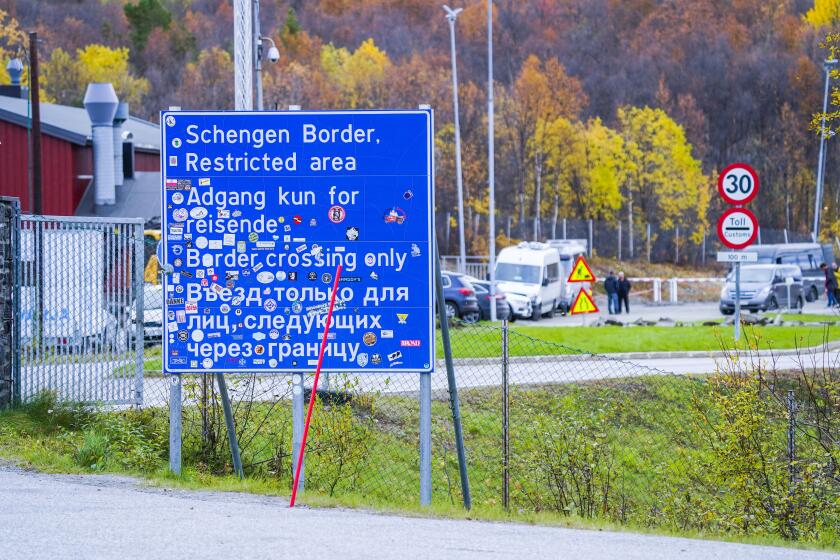Proposition 187 Backers Should Call It Quits
Most of Proposition 187 has never gone into effect because of temporary injunctions issued after its 1994 passage. The chance that it would become law grew even dimmer Friday with a federal judge’s ruling that most of the state ballot measure unconstitutionally tries to regulate immigration, which is rightly the responsibility of the federal government.
The measure’s proponents, including Gov. Pete Wilson, brushed off the ruling by U.S. District Judge Marianna R. Pfaelzer, saying it merely clears a stumbling block on the way to the Supreme Court. But the state would be better served if Wilson and other backers of Proposition 187 considered how little they might gain--and what California could lose--if they soldier on through the courts.
One major chunk of the proposition, which would bar illegal immigrant children from California schools, is clearly in violation of a 1982 Supreme Court decision, Plyler vs. Doe. The other chief aim of the measure, denial of public benefits to illegal immigrants, was mostly included--and in some ways expanded--in the federal welfare overhaul of 1996. And Pfaelzer let stand a part of the measure that establishes state criminal penalties for the manufacture or use of fake immigration documents. So what, aside from the pride of battle, could really be gained from a continued court fight?
And what would be lost? Surely, the publicity generated by pushing this matter to the Supreme Court would abrade the barely healing wounds left by the 1994 campaign. No matter that the measure was supposedly aimed at illegal immigrants; its message was seen among immigrants, and especially among Latinos, as far more broadly targeted.
Emotion aside, Pfaelzer was absolutely correct in her bottom line, that immigration matters are federal responsibilities. It’s true that Proposition 187 was in part the product of federal neglect of the impact of immigration on California. But that frustration was heard by Congress as it tackled the federal welfare laws, which Pfaelzer invoked as a major rationale for overturning the state measure.
There is admittedly far to go. Washington ought to pay more of the states’ immigration costs. The Immigration and Naturalization Service has made strides in border control, but its legalization and citizenship procedures are a mess. One moment they let immigrants with criminal records through the citizenship net, the next moment they close down to a crawl for even model candidates.
But think how much bigger a mess 50 states would make of immigration policy. The measure’s backers could make useful headway by keeping pressure on Washington for policies that relieve affected states. They can do no good by re-engaging a nasty fight that is bound to harm California.
More to Read
Get the L.A. Times Politics newsletter
Deeply reported insights into legislation, politics and policy from Sacramento, Washington and beyond. In your inbox three times per week.
You may occasionally receive promotional content from the Los Angeles Times.










